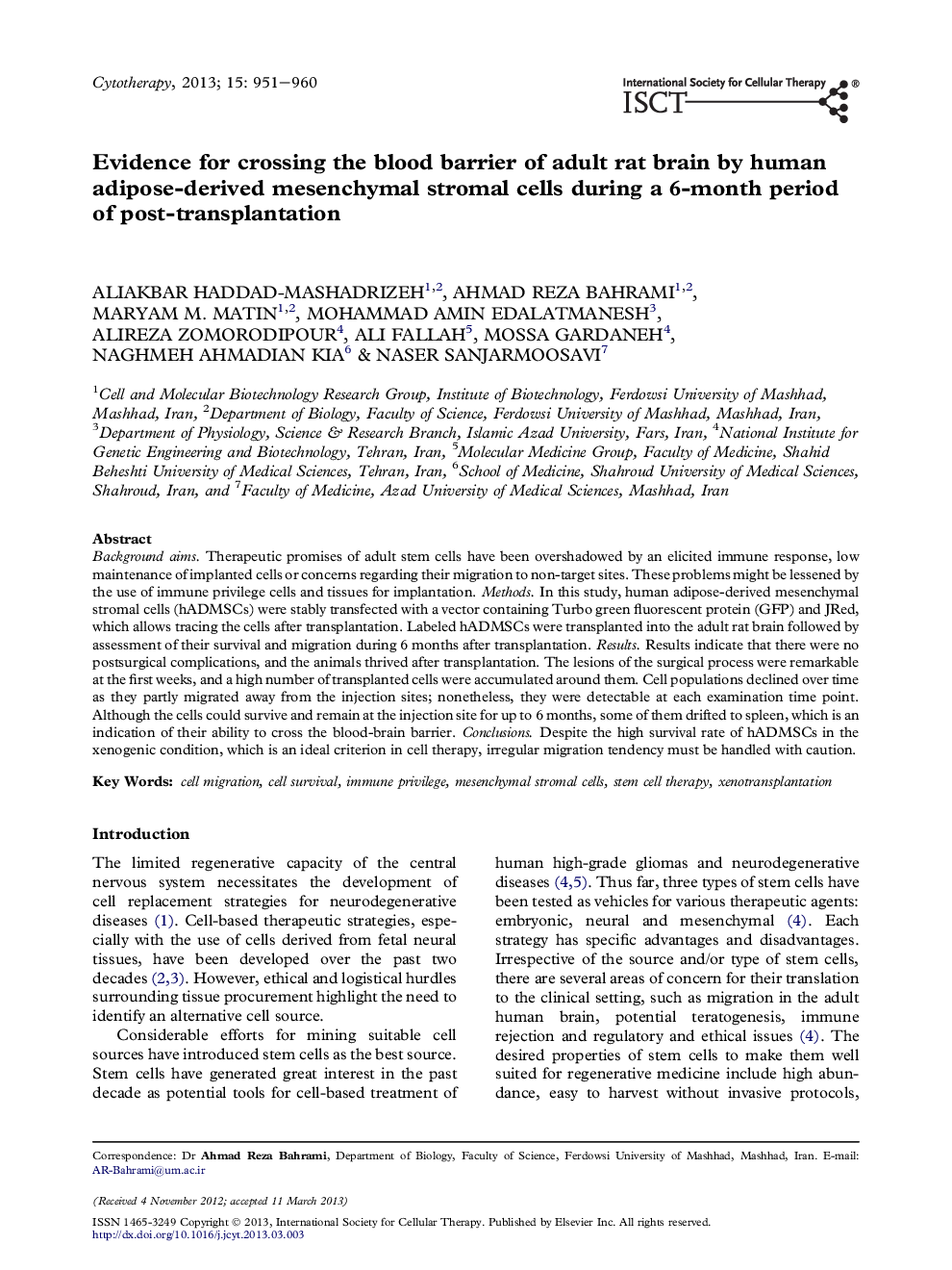| Article ID | Journal | Published Year | Pages | File Type |
|---|---|---|---|---|
| 2171282 | Cytotherapy | 2013 | 10 Pages |
Background aimsTherapeutic promises of adult stem cells have been overshadowed by an elicited immune response, low maintenance of implanted cells or concerns regarding their migration to non-target sites. These problems might be lessened by the use of immune privilege cells and tissues for implantation.MethodsIn this study, human adipose-derived mesenchymal stromal cells (hADMSCs) were stably transfected with a vector containing Turbo green fluorescent protein (GFP) and JRed, which allows tracing the cells after transplantation. Labeled hADMSCs were transplanted into the adult rat brain followed by assessment of their survival and migration during 6 months after transplantation.ResultsResults indicate that there were no postsurgical complications, and the animals thrived after transplantation. The lesions of the surgical process were remarkable at the first weeks, and a high number of transplanted cells were accumulated around them. Cell populations declined over time as they partly migrated away from the injection sites; nonetheless, they were detectable at each examination time point. Although the cells could survive and remain at the injection site for up to 6 months, some of them drifted to spleen, which is an indication of their ability to cross the blood-brain barrier.ConclusionsDespite the high survival rate of hADMSCs in the xenogenic condition, which is an ideal criterion in cell therapy, irregular migration tendency must be handled with caution.
